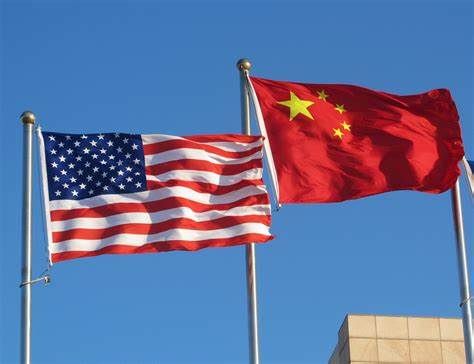Will This Slow Global Cooperation On Climate Change And Trade?
PHOTO: The Author
By Nicholas D. Nimley
In recent years, global efforts to combat climate change and promote free trade have gained considerable momentum.
However, the announcement of a US$345 million US military package for Taiwan, as part of the US Congress in 2023, which is approved by US$1 billion, is likely to add to the vulnerability of the parties. Cooperation discussions are ongoing between the United States and China.
Taiwan Status and Joint Communiqué
The issue of Taiwan’s status is a complex and delicate one. China considers Taiwan an inalienable part of its territory and has long sought reunification, while the island considers itself an independent and sovereign state. For its part, the United States has maintained informal diplomatic relations with Taiwan while recognizing the one-China policy. According to the 1972 Shanghai Communiqué and other subsequent joint communiques, the United States recognized China’s position that there is only one China and that Taiwan is part of China.

Going back to 1979, it may be recalled that the administration of President Jimmy Carter officially normalized relations with the People’s Republic of China and that was January 1, 1979, but the issue was divisive for a long time about US arms sales to Taiwan and it remains unresolved. China then and to this day insists that continuing sales is a violation of its country’s sovereignty and a justification for downgrading relations with the United States.
The congressional action, though known as the “April 1979 Taiwan Relations Act”, forced the United States to sell weapons deemed “defensive” to Chinese Taiwan, despite objections of the mainland to this, that arms sales can be a challenge for the country’s sovereignty and does not respect territorial integrity.
Climate change has become one of the most pressing global challenges, requiring collaborative efforts and linkages between countries. Both the United States and China are key players in the fight against climate change, and their cooperation is critical to effective global action. Cooperation between the two countries on climate change is important, given their status as the world’s two largest carbon emitters.
China and the United States have made commitments to combat climate change, such as joining the Paris Agreement and setting ambitious emission reduction targets, as President Xi Jinping has stated. China’s goal of achieving “carbon neutrality by 2060” in a statement to the United Nations General Assembly in September 2020.
We all know that climate change knows no borders; its impact affects every country, regardless of the political ideology or economic system of the countries. Sea levels continue to rise, extreme weather events and ecosystem destruction will continue to threaten human life, biodiversity and the foundation of our society if we continue to waste time.
Recently, UN Secretary-General Antonio Guterres said: Humanity is in the hot seat. For vast parts of North America, Asia, Africa, and Europe, it is a cruel summer for the entire planet, it is a disaster. All this is entirely consistent with predictions and repeated warnings, and the only surprise is the speed of the change. Climate change is here, it is terrifying, and it is just the beginning, and the era of global warming has ended; the era of global boiling has arrived”, he said at a press conference, after scientists had confirmed that July was deemed to be the world’s hottest month on record.
This development of climate cooperation has led to the resumption of negotiations between the two countries and was witnessed by the recent visit of US climate change envoy John Kerry to China. But this military package for Taiwan risks undermining the momentum of cooperation that has been achieved in recent weeks, despite the lack of a formal agreement between the world’s two superpowers.
The US military package for Taiwan risks further complicating ongoing cooperation talks with China on climate change. This can send a message of mistrust and antagonism, potentially leading to a breakdown in diplomatic channels. By treating Taiwan as a separate entity from China, the US appears to be technically weakening the one-China policy and relationship with Taiwan that call for a reduction in arms sales. China’s voice against such a move is fundamental to its national interest. The move could trigger a range of retaliatory measures from China, including suspending or undermining cooperation on climate change initiatives. And when that happens, the gains that have been made will be eroded. Climate change is wreaking havoc all over the world, from the Americas to Africa, Europe and Asia. There have been massive, uncontrolled fires and floods that have destroyed lives and property around the world.
In addition, the military package may instill a sense of betrayal among Chinese officials and citizens, who may see it as a deliberate attempt to undermine China’s territorial integrity. . This negative sentiment can undermine the goodwill needed for constructive engagement on climate change and other areas of mutual concern. The resulting strain in US-China relations could lead to a breakdown of trust, making it difficult to make meaningful progress towards global climate goals.
The US military package for Taiwan could also have important implications for global trade dynamics. China is the world’s largest trading nation, and any disruption in its trading relationship could have far-reaching consequences. The military package risks causing the Chinese regime to impose trade restrictions and tariffs, not only on the United States, but also on countries that support the US position on Taiwan. This retaliatory action would disrupt global supply chains, increase trade tensions and possibly harm the global economy.
Furthermore, the military package could lead to a broader erosion of trust among nations engaged in international trade. Countries that fear getting caught up in a US-China tussle may be reluctant to enter into trade or investment deals, which would slow global economic growth. The interconnectedness of the global economy means that political disruptions to trade can have cascade effects, affecting businesses, workers and consumers around the world.
Disclaimer: This article represents the views of the writer, and has nothing to do with the editorial policy of this media institution.
About the Author: Nicholas D. Nimley, is an award winning writer, a journalist, and a researcher at China’s Renmin University. He can be contacted by email: dnimley2005@gmail.com or +231776586433(WhatsApp).

